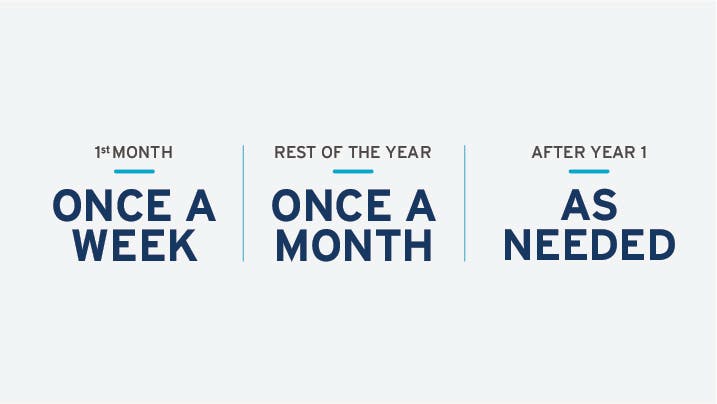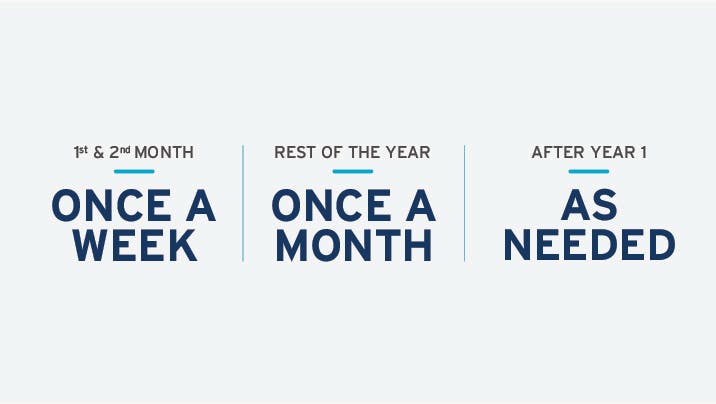Approved Uses & Safety Info
Approved Uses
Important Safety Information
Approved Uses
ZEJULA is a prescription medicine used to treat adults for:
- maintenance treatment of advanced ovarian cancer, fallopian tube cancer, or primary peritoneal cancer with a certain type of abnormal BRCA gene or a positive laboratory tumor test for genomic instability called homologous recombination deficiency (HRD). ZEJULA is used after the cancer has responded (complete or partial response) to treatment with first-line platinum-based chemotherapy.
- maintenance treatment of ovarian cancer, fallopian tube cancer, or primary peritoneal cancer with a certain type of inherited (germline) abnormal BRCA gene that comes back. ZEJULA is used after the cancer has responded (complete or partial response) to treatment with platinum-based chemotherapy. Your healthcare provider will perform a test to make sure that ZEJULA is right for you.
It is not known if ZEJULA is safe and effective in children
Important Safety Information
ZEJULA may cause serious side effects, including:
Bone marrow problems called Myelodysplastic Syndrome (MDS) or a type of blood cancer called Acute Myeloid Leukemia (AML). Some people who have ovarian cancer and who have received previous treatment with chemotherapy or certain other medicines for their cancer have developed MDS or AML during treatment with ZEJULA. MDS or AML may lead to death.
Symptoms of low blood cell counts (low red blood cells, low white blood cells, and low platelets) are common during treatment with ZEJULA. They can be a sign of serious bone marrow problems, including MDS or AML. These symptoms may include the following:
- Weakness
- Feeling tired
- Weight loss
- Frequent infections
- Fever
- Shortness of breath
- Blood in urine or stool
- Bruising or bleeding more easily
Your doctor will do blood tests to check your blood cell counts before treatment with ZEJULA. You will be tested weekly for the first month of treatment with ZEJULA, monthly for the next 11 months of treatment, and as needed afterward.
High blood pressure is common during treatment with ZEJULA, and it can become serious. Your doctor will check your blood pressure and heart rate at least weekly for the first two months, then monthly for the first year, and as needed thereafter during your treatment with ZEJULA.
Posterior reversible encephalopathy syndrome (PRES) is a condition that affects the brain and may happen during treatment with ZEJULA. If you have headache, vision changes, confusion, or seizure, with or without high blood pressure, please contact your doctor.
Before starting to take ZEJULA, tell your doctor about all of your medical conditions, including if you:
- Have heart problems
- Have liver problems
- Have high blood pressure
- Are pregnant or plan to become pregnant. ZEJULA can harm an unborn baby and may cause loss of pregnancy (miscarriage)
- If you are able to become pregnant, your doctor should perform a pregnancy test before you start treatment with ZEJULA
- If you are able to become pregnant, you should use effective birth control (contraception) during treatment with ZEJULA and for 6 months after taking the last dose of ZEJULA
- You should tell your doctor right away if you become pregnant
- Are breastfeeding or plan to breastfeed
- ZEJULA may harm your baby. You should not breastfeed your baby during treatment with ZEJULA and for 1 month after taking the last dose of ZEJULA
Tell your doctor about all the medicines you take, including prescription and over-the-counter medicines, vitamins, and herbal supplements.
The most common side effects of ZEJULA include the following:
- Nausea
- Tiredness
- Constipation
- Pain in your muscles and back
- Pain in the stomach area
- Vomiting
- Loss of appetite
- Trouble sleeping
- Headache
- Shortness of breath
- Rash
- Diarrhea
- Cough
- Dizziness
- Changes in the amount or color of your urine
- Urinary tract infection
- Low levels of magnesium in the blood
If you have certain side effects, then your doctor may change your dose of ZEJULA, temporarily stop, or permanently stop treatment with ZEJULA.
These are not all the possible side effects of ZEJULA. For more information, ask your doctor or pharmacist. Call your doctor for medical advice about side effects.
Please see the full Prescribing Information, including Patient Information for ZEJULA.



